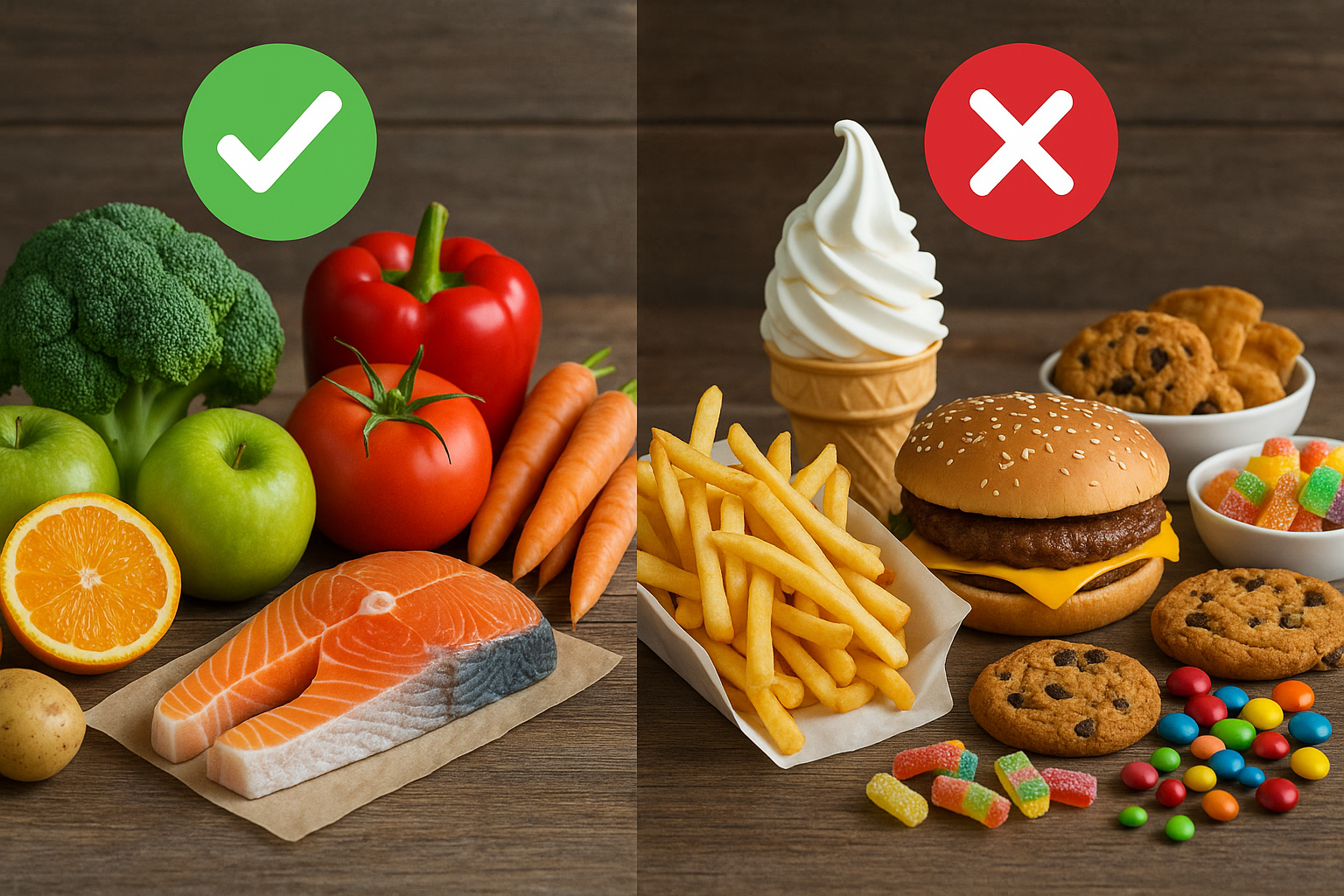Inflammation is a natural and necessary part of your body’s defense system.
However, chronic, low-grade inflammation—the kind that persists silently—can contribute to serious health issues, including heart disease, diabetes, arthritis, and even depression.
The good news?
Your daily food choices have a powerful impact on controlling inflammation naturally.
In this article, you’ll learn how to use nutrition to calm inflammation, protect your health, and boost your vitality.
1. What Is Inflammation?
Inflammation is your body’s way of fighting infections, injuries, and toxins. In acute cases (like a cut or cold), it’s beneficial.
But when inflammation becomes chronic, it silently damages tissues and organs over time.
Triggers of chronic inflammation include:
- Poor diet (high in processed foods, sugar, trans fats)
- Sedentary lifestyle
- Chronic stress
- Poor sleep
- Environmental toxins
Managing inflammation through nutrition is a cornerstone of long-term health.
2. Anti-Inflammatory Foods to Add to Your Plate
Fruits and Vegetables
- Rich in antioxidants and phytochemicals that fight inflammation
- Focus on berries, leafy greens, broccoli, tomatoes, carrots, and peppers
Healthy Fats
- Omega-3 fatty acids help calm inflammation
- Sources: salmon, sardines, chia seeds, flaxseeds, walnuts
Whole Grains
- Brown rice, oats, quinoa, barley
- Provide fiber, which supports gut health and reduces inflammatory markers
Legumes
- Lentils, black beans, chickpeas
- Packed with fiber, protein, and antioxidants
Herbs and Spices
- Turmeric (with black pepper for absorption)
- Ginger, cinnamon, garlic, rosemary
Green Tea
Contains powerful antioxidants like EGCG that reduce inflammation
3. Foods to Limit for Lower Inflammation
Refined Sugars and Carbs
- Cause spikes in blood sugar and promote inflammatory pathways
- Found in soda, candy, pastries, and many packaged snacks
Trans Fats and Hydrogenated Oils
Found in some margarine, processed snacks, and fried foods
Excessive Alcohol
Increases gut permeability and systemic inflammation
Ultra-Processed Foods
High in additives, preservatives, and inflammatory oils
You don’t have to eliminate everything forever—focus on reducing these most days.
4. How Gut Health Influences Inflammation
Your gut microbiome plays a huge role in regulating inflammation.
✅ Eat probiotic-rich foods like yogurt, kefir, sauerkraut, and kombucha
✅ Eat prebiotic foods like bananas, asparagus, and oats to feed good bacteria
✅ Avoid frequent use of antibiotics unless necessary
A healthy gut = a more balanced, anti-inflammatory immune response.
5. Build an Anti-Inflammatory Meal Plan
Sample Anti-Inflammatory Day:
- Breakfast: Oatmeal topped with berries, chia seeds, and walnuts
- Lunch: Quinoa salad with chickpeas, spinach, avocado, and olive oil dressing
- Dinner: Grilled salmon with roasted broccoli and sweet potatoes
- Snacks: Green tea, a handful of almonds, or a banana
Small, consistent choices throughout the day add up to big health wins.
6. Other Lifestyle Tips to Fight Inflammation
In addition to nutrition:
✅ Exercise moderately—move daily (walking, stretching, strength training)
✅ Sleep 7–9 hours per night to allow your body to repair
✅ Manage stress through mindfulness, meditation, hobbies, and connection
✅ Stay hydrated—drink plenty of water to help flush toxins
A holistic approach gives the best results.
You Have the Power to Calm Inflammation Naturally
Every meal is an opportunity to heal, energize, and protect your body. Focus on colorful, nutrient-dense foods.
- Move with joy.
- Rest with intention.
- And remember: True health is built one nourishing choice at a time.
